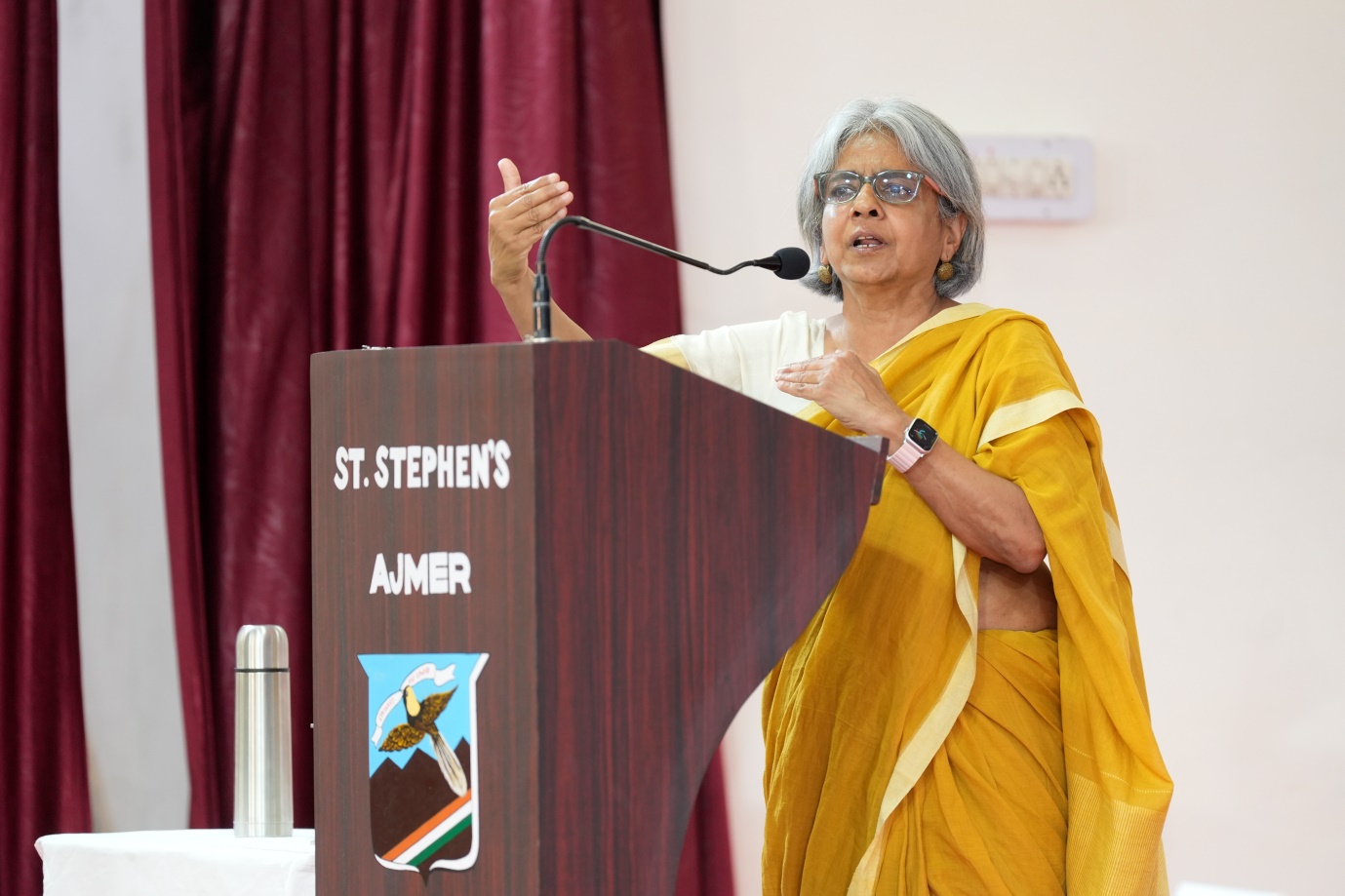The Twenty-Second Dr. (Mrs.) Deepa Martins Memorial Lecture was held on April 5, 2025, in the School auditorium. Our Honorary Mentor delivered the welcome address and introduced the keynote speaker, Ms. Sunita Narain, Environmentalist and Writer, Director-General, Center for Science and Environment and Editor of the ‘Down to Earth’ magazine and Guest of Honour Ms. Aruna Roy, social activist and recipient of the Ramon Magsaysay Award. The Secretary of the St Stephen’s School Society, Ms. Shefali Martins presented an insight into the life and times of Dr. (Mrs.) Deepa Martins. The keynote speaker delivered the keynote address on ‘Climate Change: What We Can Do?’
In her address, Ms. Sunita Narain stated that the concern for the environment is not only a scientific issue but is also deeply connected to the foundation of life. Climate change is no longer a distant threat but an unfolding crisis that is reshaping ecosystems, economies, and everyday life. She said that her journey in the direction of environmental conservation was inspired by the historic Chipko Movement in the Himalayan region and how the residents of this region see forests as a vital source of livelihood and self-reliance. She provided a comprehensive overview of how rising global temperatures, unpredictable rainfall patterns, and frequent natural disasters are placing tremendous stress on both natural systems and human populations.
Expressing concern for the future, she said that we are becoming the inheritors of a world that has become significantly warmer than before, and the primary reason for this is the excessive emission of gases like carbon dioxide. In this context, she referred to tree species such as the Oak of the Himalayas and the Khejri of Rajasthan, explaining that trees are symbols of greenery as they hold soil together and play a crucial role in sustaining life and maintaining ecological balance. Understanding these trees, teaches us that science does not emerge only from laboratories but also from the lived experiences of people.
A significant portion of her lecture was devoted to solutions, where she advocated for a just and inclusive approach to climate action. She shared that values such as respect for the atmosphere, equal rights, and principles of justice are essential—and that every individual has a vital role to play in addressing this global environmental crisis. She also emphasized the importance of water conservation through water harvesting and the revival of traditional water sources.
Ms. Aruna Roy, in her address, exhorted that it is our responsibility to keep both the external and the internal environment clean and balanced. If we contribute positively to nature, it will, in return, provide us with a clean life, balanced air and water and mental peace.
The Director, Ms. Bharti Tolumbia, proposed the Vote of Thanks. She said that this lecture will go a long way in inspiring students to understand the holistic dimension of the reality of climate change and become more responsible and environmentally conscious citizens for decades to come.

